How Do I File An Injury Lawsuit Against A DWI Driver That Caused Our Accident?

At some point in our lives, there’s a reasonable chance we’ll be involved in an auto accident of some sort.
How Do I File An Injury Lawsuit Against A DWI Driver That Caused Our Accident?
If you’ve been involved in an accident with a driver who was under the influence of alcohol, you may be wondering if you can file a lawsuit. The answer is yes, you can sue for damages if you’ve been injured by a drunk or intoxicated driver.
In New Jersey, the plaintiff does not need to prove that the driver was convicted of a DWI before filing a civil lawsuit. All that is needed is to show that the driver was negligent under the law.
A motorist is considered negligent when he or she:
- Fails to use reasonable care to prevent harm to others
Is negligent “per se” by violating a statute, such as:
- Driving while under the influence
- Driving with a blood alcohol level of .08% or higher.
If you or a loved one has been injured in an accident with a drunk driver, you may be entitled to compensation for your medical bills, lost wages, and pain and suffering. Contact a New Jersey personal injury attorney to discuss your legal options.
Damages recoverable after being hit by DWI driver
Damages that can be recovered by someone who is hit by an intoxicated driver can include:
- Medical bills
- Car repair bills
- Lost wages
- Lost earning capacity
- Pain and suffering
- Punitive damages
Families of people who are injured or killed by drunk drivers may also be able to recover damages in a lawsuit for:
- Loss of consortium
- Wrongful death
- New Jersey “survival” action
The number of damages that can be recovered will depend on the particular facts and circumstances of each case. An experienced personal injury attorney will be able to advise you of what damages may be available in your case.
When can someone sue a drunk driver in New Jersey?
If you are injured in a car accident caused by a drunk or drugged driver in New Jersey, you may be able to sue the driver for damages.
To succeed in such a lawsuit, you will need to prove that the driver was negligent and that as a result of the negligence, you suffered damages.
It is important to note that a driver is considered intoxicated when the alcohol and/or drugs impair his or her ability to operate a vehicle safely. Therefore, if you can show that the driver’s intoxication led to the accident, it will be easier to prove negligence.
When is a driver negligent under the law?
Most car accidents are caused by driver negligence. But what exactly is negligence? And when does it rise to the level of legal liability?
In New Jersey, drivers owe a duty of care to other motorists and pedestrians. This means that they must use reasonable care to prevent harm to others. Failure to do so is considered negligence.
There are many ways in which a driver can be negligent. For example, speeding, running red lights, and texting while driving are all dangerous activities that can lead to accidents.
When a driver violates a law or statute meant to protect others, they may be deemed negligent per se. This means that the violation itself is proof of negligence.
If you’ve been injured in an accident caused by another driver’s negligence, you may be entitled to compensation. An experienced personal injury attorney can help you understand your legal rights and options.
New Jersey “negligence per se” law
Under New Jersey’s negligence “per se” law, a defendant is presumed negligent if he or she violates a law, statute, or ordinance, and because of such violation causes an injury.
Once the plaintiff introduces evidence of negligence per se, the burden of proof shifts to the defendant to prove that either: he or she did not violate the statute, or the violation of the statute did not cause the plaintiff’s injury.
To successfully rebut the presumption of negligence, the defendant must provide clear and convincing evidence that one of these two conditions is met.
New Jersey DWI laws
Driving under the influence
Driving under the influence is a serious offense in the state of New Jersey. it is a crime to operate a motor vehicle while under the influence of alcohol and/or drugs. A driver is “under the influence” if his or her physical or mental abilities are impaired to the extent that he or she can no longer drive as well as a cautious sober person.
It a crime to drive with a blood alcohol concentration (BAC) of .08% or higher. This is commonly referred to as “drunk driving.”
It is a crime to drive while under the influence of drugs. This includes both illegal and prescription drugs.
If you are convicted of driving under the influence, you will face serious penalties. These can include jail time, fines, driver’s license suspension, and mandatory DWI classes. If you cause an accident while driving under the influence, you could be facing even more severe penalties.
Don’t take the risk – if you’ve been drinking, don’t get behind the wheel. And if you’re taking prescription or illegal drugs, make sure you know how they will affect your ability to drive before getting behind the wheel. It’s not worth the risk to yourself or others on the road.
“Per se” DWI for adult drivers
Drivers who are 21 or older can be charged with driving under the influence (DWI) if they have a blood alcohol concentration (BAC) of 0.08% or higher. This is known as a “per se” DWI.
A per se DWI can be determined by a DWI chemical test, which is usually either a breath test or blood test. If drug use is suspected, the driver will likely be required to take a blood test.
If you are facing a per se DWI charge, it is important to speak with an experienced DWI attorney as soon as possible. An attorney can help you understand the charges against you and fight for the best possible outcome in your case.
Excess Blood Alcohol Concentration – CDL
It is against the law in New Jersey to drive a commercial vehicle with a blood alcohol concentration (BAC) of .04% or higher. This offense is sometimes known as “Excess BAC CDL.”
Commercial drivers who drive between states are also subject to federal motor carrier safety laws. If you are convicted of Excess BAC CDL, you may face serious penalties, including a loss of your commercial driver’s license (CDL).
If you have been charged with Excess BAC CDL, it is important to talk to an experienced DWI defense attorney as soon as possible. An attorney can review the facts of your case and help you determine the best course of action.
DWI by ridesharing, taxi, or limo drivers
It is illegal for anyone to drive with a BAC of 0.04% or higher when a passenger for hire is in the vehicle.
Passenger for hire means anyone who is paying for the driver’s services. This includes drivers of ride-sharing services such as Uber or Lyft as well as taxi and limo drivers.
If you are caught driving under the influence with a passenger for hire in your vehicle, you could face severe penalties including jail time, fines, and the loss of your commercial driver’s license. If you cause an accident while driving under the influence with a passenger for hire in your vehicle, you could be sued for damages.
Don’t take the risk – if you’re going to drink, don’t drive. If you must drive, don’t drink.
Underage DWI
If you are under the age of 21, it is illegal for you to operate a motor vehicle with a blood alcohol content (BAC) of .01% or higher. This means that even if you don’t feel impaired, you can still be charged with DWI if your BAC is above the legal limit.
The penalties for underage DWI are severe, and can include fines, jail time, and a loss of driving privileges. If you are facing charges of underage DWI, it is important to speak with an experienced criminal defense attorney who can help you fight the charges and protect your rights.
“Zero-tolerance” law for underage drivers
In New Jersey, it is an infraction for an underage driver to have a blood alcohol content (BAC) of .01% or higher while behind the wheel. This is known as the state’s “zero-tolerance” law.
Although this is not technically a DWI, it is a violation of law. So, by testing positive for any alcohol, an underage driver will be considered negligent per se if sued in a civil lawsuit.
However, the plaintiff will still need to prove that the accident was caused by the defendant’s impairment.
This zero-tolerance law applies to all drivers under the age of 21. If you are caught driving with a BAC of .01% or higher, you will face the following penalties:
- A fine of up to $500
- Up to 30 days in jail
- A license suspension of up to 6 months
- 6 points on your driving record
Repeat offenders will face even harsher penalties, including a possible license revocation.
If you are involved in an accident while driving under the influence of alcohol, you could be sued for negligence. If the plaintiff can prove that your intoxication was a factor in the accident, you may be liable for damages. This is true even if your BAC was below the legal limit.
Intoxication is just one type of negligence that can lead to a civil lawsuit. If you are found to be at fault for an accident, you may be responsible for the other party’s medical bills, lost wages, and other damages.
If you have been involved in an accident, it is important to speak with an experienced personal injury attorney. An attorney can help you understand your rights and options under the law.
Driving while addicted to a drug
It is illegal to drive while addicted to a drug in the state of New Jersey. This includes both prescription and over-the-counter medications. There is an exception for people who are participating in a court-approved narcotics treatment program for opioid dependence. In such a case, use of a substance such as Methadone, LAAM or Buprenorphine does not constitute a violation.
However, a driver on these substances may still be negligent for other reasons. If you or someone you know has been charged with driving while under the influence of drugs, it is important to seek experienced legal counsel. An attorney can help you navigate the complex legal process and protect your rights.
Chemical test refusal
If you are arrested on suspicion of DWI in New Jersey, you are required to submit to a chemical test. This is because of the state’s “implied consent” law, which states that by driving in the state, you have consented to a chemical test if lawfully arrested on suspicion of DWI.
Refusing to take a chemical test is a violation and can be used as evidence against you in court. Therefore, if you refuse to take a breath or blood test, you may be considered “negligent” per se. If convicted of DWI, you may face significant penalties, including jail time, fines, and the suspension of your driver’s license.
If you have been arrested on suspicion of DWI, it is important to speak to an experienced DWI attorney who can help you navigate the legal process and ensure that your rights are protected.
Federal motor carrier safety regulations
Federal law prohibits interstate drivers of commercial vehicles from driving under the influence. This includes driving with a BAC of .04% or higher, or while performing any safety-sensitive functions with a controlled substance in his/her system.
These regulations are in place to ensure the safety of all motorists on the road. Violators of these regulations will be subject to penalties and may have their commercial driver’s license revoked.
The accident must be caused by the drinking or drug use
It is not enough to show that the defendant was drinking or using drugs before the accident. The plaintiff must also show that the defendant’s drinking or drug use caused the accident. In other words, if the defendant had not been drinking or using drugs, the accident would not have happened.
This can be difficult to prove, and often requires expert testimony. If you have been injured in an accident and believe that the other driver may have been under the influence of alcohol or drugs, it is important to speak with an experienced personal injury attorney who can help you investigate and build your case.
Does the defendant need to be convicted?
In contrast, New Jersey civil liability laws are designed to compensate victims of drunk driving accidents. In a civil lawsuit, the victim only needs to prove that the defendant was “negligent” or at fault for the accident by a “preponderance of the evidence.” This means that it is more likely than not that the defendant was negligent.
The burden of proof in a civil lawsuit is much lower than in a criminal trial, which is why it is possible to sue for damages even if the driver is not convicted of DWI.
However, a conviction can be helpful evidence that the driver was negligent. If the jury believes that the driver was convicted beyond a reasonable doubt, they may be more likely to find that the driver was also negligent.
Is a DWI conviction proof of negligence?
A DWI conviction is sufficient to prove that the defendant was negligent per se. This is because violation of a statute constitutes per se negligence under New Jersey law.
So even if the defendant avoids jail time by pleading to a New Jersey “dry reckless” or other vehicle code violation, it will still be negligence per se. (Note that it does not work the other way around. Being found liable in a civil lawsuit for DWI does not establish guilt under New Jersey criminal DWI laws).
But the defendant has the right to introduce evidence showing that his or her impairment did not cause the accident. If this can be shown, then the conviction will not necessarily result in a finding of negligence.
Damages recoverable in a lawsuit against a DWI motorist
If you are the victim of a drunk driver, you may be able to recover compensatory damages in a settlement.
These can include:
- Medical bills
- Psychological counseling
- Long- or short-term care
- Physical or occupational rehabilitation
- Lost wages
- Lost earning capacity
- Pain and suffering
- Loss of enjoyment of life
- Loss of a limb or the use of a limb or other body part
In each case, you will need to prove that the other driver’s negligence caused your damages. An experienced personal injury attorney can help you gather the evidence you need to build a strong case.
Are punitive damages recoverable against a DWI driver?
Yes, punitive damages are recoverable against a DWI driver in New Jersey. To do so, the plaintiff must prove by clear and convincing evidence that the defendant was guilty of malice. Malice in this context does not mean evil or bad intent, but rather a wanton or reckless disregard for the safety of others. If the plaintiff can prove that the defendant acted with such disregard, then they may be entitled to punitive damages.
Can families of injured people sue a DWI driver?
Yes, in many cases families of people who are injured or killed by drunk drivers may be able to sue the driver for damages. Possible bases for recovery include loss of consortium, wrongful death, or a New Jersey “survival” action.
All these causes of action arise from the loss of the companionship and financial support of a loved one. In many cases, punitive damages are also recoverable when a family member is hit by a DWI driver. If you have been affected by a drunk driving accident, you should speak to an experienced personal injury attorney to learn more about your legal rights and options.
What if I was partly to blame for an accident with a DWI driver?
If you were involved in an accident with a DWI driver, you may be wondering whether you can still recover damages if you were partly to blame for the accident.
The good news is that New Jersey follows a “comparative fault” standard of negligence. This means that even if you were partially at fault for the accident, you can still recover damages from the other driver, if they were more at fault than you were.
For example, let’s say that the other driver was speeding and ran a red light, but you failed to yield the right of way. In this case, the other driver would be considered more at fault than you are, and you would be able to recover damages from them.
However, it’s important to note that you can only recover damages up to the amount of your own fault. So, if you were 50% at fault for the accident, you would only be able to recover 50% of the damages from the other driver.
Does insurance cover DWI drivers?
Most New Jersey auto insurance policies will pay compensatory damages when a policyholder injures someone while driving drunk.
This means that compensatory damages (such as medical bills) can be recovered under:
- The DWI driver’s third-party auto liability insurance (up to policy limits)
- The plaintiff’s own uninsured / underinsured motorist policy
However, the plaintiff may have to sue a defendant directly if:
- There is no insurance that covers the accident
- The aggregate policy limits of all applicable policies do not cover the plaintiff’s damages
If you have been injured by a drunk driver, it is important to consult with an experienced personal injury attorney to discuss your legal options and ensure that you receive the compensation you deserve.
What should I do if I am hit by a drunk driver?
If you are hit by a drunk driver in New Jersey, there are some important steps you should take to protect your rights. First, if possible, you should call the police. A police report and chemical test (if one was given) can be strong evidence that the other driver was operating a motor vehicle while drunk or under the influence of drugs.
Even if the other driver wasn’t intoxicated, there are still 15 steps you should take after any car accident in New Jersey. These include collecting information from the other driver, such as their name, driver’s license number, insurance company information, and more.
By taking these steps, you can help ensure that you have everything you need to pursue any legal claims you may have against the other driver.
Related Blogs
No Fee Unless
GGL Wins
We've got you covered.
We are available 24/7/365
One of our advisers will contact you.

OFFICIAL PARTNER OF RUTGERS ATHLETICS



Recent GGL Wins
Auto Accident
Mediation award Plaintiff was injured in an intersection motor vehicle collision resulting in neck and lower back fusion surgeries.
$2 Million
Verdict
Workers Compensation
25-year-old laborer died in an industrial accident while working.
$1.15 Million
Verdict
Construction Accident
Roofer fell off roof causing head trauma resulting in a head injury. Plaintiff was not given fall restraint protection equipment by contractor.







